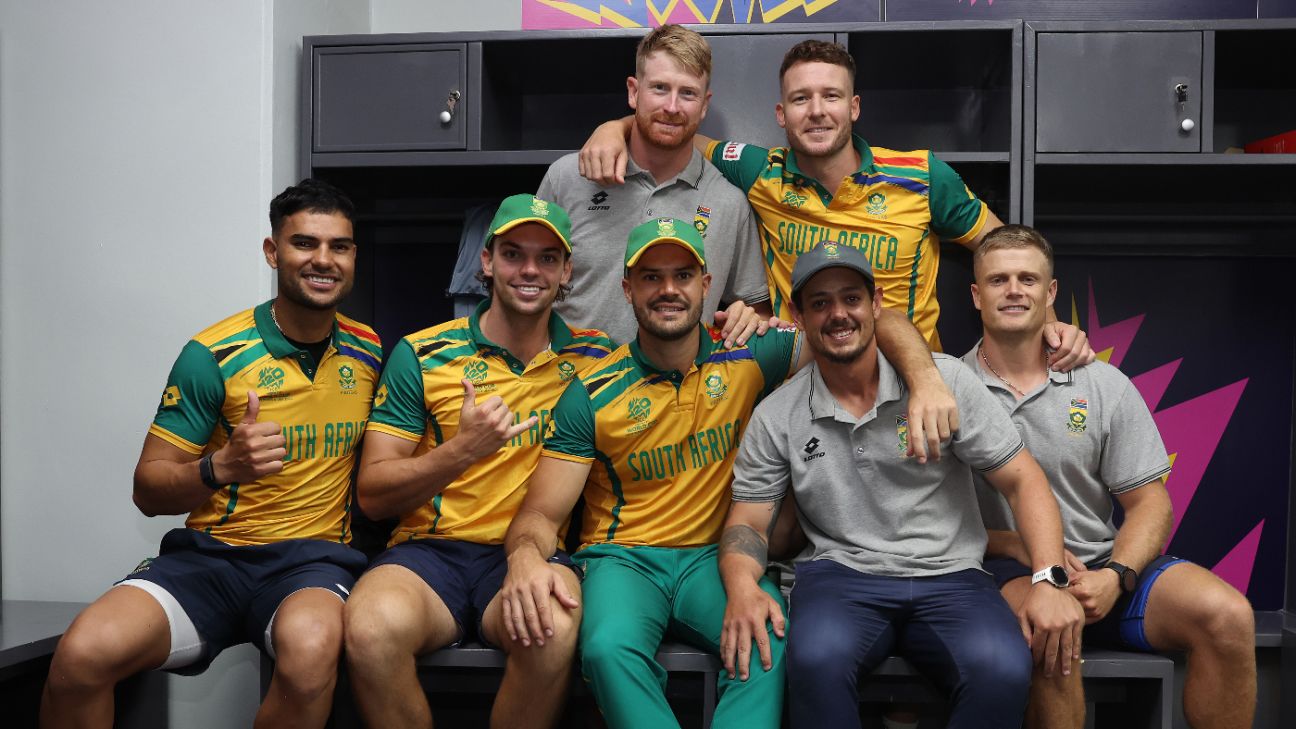World
For South Africa, and those who know what they know

Hulle weet nie wat ons weet nie.
They don’t know what we know.
This phrase was made famous by UFC champion Dricus du Plessis, turned into a song by Afrikaans pop sensation Kurt Darren, used as a mantra by the world champion Springboks, and is now a South African proverb.
They don’t know what we know. Sounds arrogant, right?
It’s not. It’s pain.
South Africans don’t believe the world understands us and everything we go through as a nation that has chosen to continuously open and redress our wounds. Of course, South Africa was not the world’s only colony, or the only place to suffer from exploitation of its natural resources and the resulting poverty. It is not the only place where race-based segregation was legal; where crime is rampant and increasing and where there are shortages of electricity, water and understanding. But it is one of few places where none of that is hidden away.
The problems South Africans endure are on display for all to see, to unpick, and to attempt to piece together. It is a nation that speaks out, not always kindly, about everything that is wrong (and there is a lot wrong, and sometimes there are different wrongs for different people) while also marvelling at how many things have gone right. South Africa, which could have fallen apart so many times, is still, somehow, in a sporting sense, stunning on the world stage. So no, they don’t know what we know, and that means, according to Dricus and the Boks, that they won’t know what this means to us.
It’s why the SA20 is better supported than international cricket in South Africa. The SA20 is seen as untouched by administrators, it does not have a transformation target, it doesn’t carry CSA’s branding and it attracts international stars who praise it and the South African experience. The national team is not.
Visit any South African news website and that will be the top story. Open any newspaper, and you’re living somewhere else because the media industry has shrunk to the point where the only dailies in circulation are largely being given away (not bought) and one media group is closing four papers next month. Like much of the world, South Africans get their news through social media so a scroll through X, Facebook or Instagram will show you what the algorithm has designed for you but in general, there is more interest on those streets than the actual ones.
Around the country, it was a fairly normal Friday, perhaps slightly quieter than usual because of school holidays. It’s a South African thing to turn Fridays into national team days when there is a major tournament, and though rugby is more successful at getting people to buy in, cricket has tried. This Friday, CSA held an event at a popular shopping mall in Johannesburg and handed out flags. That was the extent of CSA’s awareness-creation and that’s not a slight on them. The short turnaround between the semi-final early on Thursday morning and the final on Saturday afternoon has made it tricky to do much but there have been some last-minute plans.
In Johannesburg, the Wanderers is hosting a watch-party, for anyone who wants to enjoy the final with other fans. In Durban, the Kwa-Zulu Natal Cricket Union have teamed with South African Breweries to do something similar at Crusaders Sports Club, about eight kilometres north of Kingsmead. Both events have free entry, which should tell you about the number of people the organisers expect to attend. It’s not that people don’t care, it’s that the sports watching culture is different.
In South Africa, people tend to watch sport in their homes, invite friends and family over, have some drinks and a braai. Doubtless, many people will be doing exactly that on Saturday, helped by the fact that the final is more than likely to be available on free-to-air television. The T20 World Cup until now was not.
Only those with a Multichoice subscription (essentially cable television) could watch all the games and that is an ever-decreasing number. Multichoice has seen a 400,000 subscriber dip in the last year, which amounts to 5% of its audience, as disposable income decreases. That means fewer South Africans have regular access to cricket on television. Considering both domestic and international cricket is only shown on pay-television, that means people simply don’t watch enough to become properly invested. Instead, there seems to be more attention on the Euros (also only available on the paid service but more likely to be screened in bars or cafes with regularity) and on the Springboks, whose international season starts properly next week.
And that’s what makes South Africa, as a sporting nation, different to their opposition in the final: India. Where cricket has often been described as religion in India, it isn’t in South Africa, and certainly not the main one. Where cricket, along with Bollywood, makes up both social fabric and celebrity culture in India, it is seen as a small part of myriad options for entertainment in South Africa. That’s why the hype has been hushed and there is no nation-wide rallying cry, and no big noise led by former and current players, who are one of the groups that will have more invested in this final than most.
When the current South African squad talk about what this means to them, they speak first about wanting to win the World Cup for these players, who laid the foundation but did not experience the building going up. Then they speak about wanting to win the World Cup for South Africans – for those who know what they know – because that is what matters.
Firdose Moonda is ESPNcricinfo’s correspondent for South Africa and women’s cricket

/static.texastribune.org/media/files/f5fdb1dff4d6fd788cba66ebaefe08d0/Paxton_GOP_Convention_2018_BD_TT.jpg)






